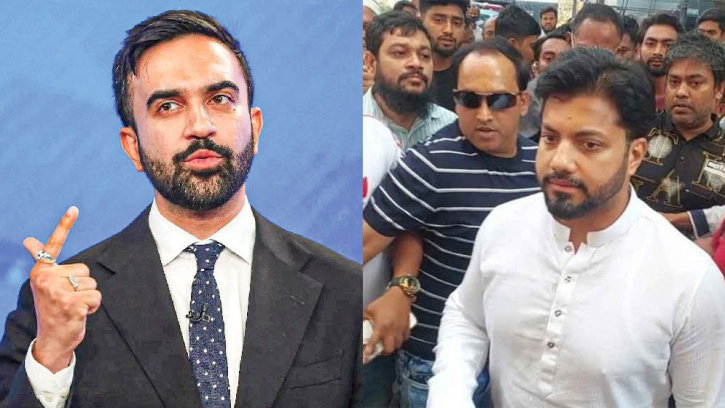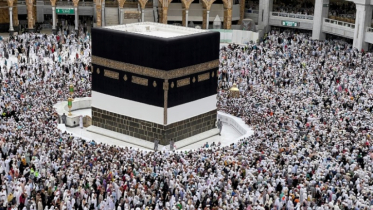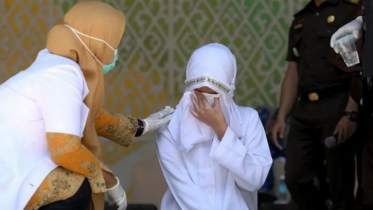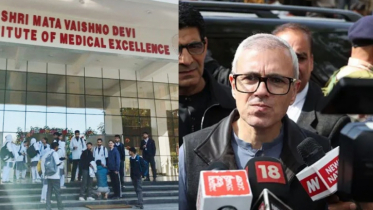The New Arrangement: What Bangladesh Can Learn from U.S. Elections

Published: 11:24 PM, 5 July 2025
The phrase “new arrangement” sounds promising. It gives the impression of a shift in society. But how much of that is possible in reality? That’s the key question. In post-uprising Bangladesh, people hoped for change—but in practice, those expectations remain unmet. We’re still trapped in old ideas, old patterns. People speak of a new arrangement, but there’s no sign of it in reality.
The next election is approaching, and debates have already begun. If we focus on electoral systems, New York City could offer us a significant lesson. The Democratic primary for mayor just concluded there. And remarkably, a young man in his thirties—Zohran Mamdani—was chosen over powerful opponents by American voters. Many didn’t even know him well—so how did it happen?
Here lies the beauty of the American system: political parties never pit citizens against each other. The candidates face off, not the voters. People watch and listen, then decide. Candidates confront each other on television, in debates, on the stage of reason. Citizens never have to fight each other. Rather, they have full access to information—who is saying what, how they plan to develop the city, all of it is laid bare. Televised debates allow voters to judge. Eight or ten candidates may debate live, while people watch on projectors in the streets or from their homes. And they make their decisions—who will work best for them, whom they trust most. No threats, no fear, no violence. The person who earns the people's trust wins.
In America, elections are not synonymous with fear or bloodshed, but rather with celebration and democratic engagement. But in Bangladesh, elections still mean violence, destruction, and deadly clashes. We’re stuck in the same old, failed formula.
Recently, Ishraq Hossain staged a blockade to claim the mayor's position—even occupying the city hall. This is just a repeat of the old arrangement. If we truly want a new one, Ishraq should first face off with rivals from within his own party through internal voting. Party workers should choose the best candidate via ballots. That would be a true “new arrangement.” The candidates should then face each other in televised debates—not instigate street violence, but present visions for the city’s future. Voters could watch, judge, and decide. This would mark a break from the culture of political brawls. That would be a new and needed model for Bangladesh.
In New York, the Democratic primary ended quietly. I spoke with many people around the city—none showed signs of anxiety or tension. No flood of posters, no noise, no chaos. You might not even know an election is happening unless you follow the news. No rallies, no police clashes, no arson attacks. Not even minor scuffles.
Compare that to Bangladesh, where elections turn into battlefields—bodies on the street, bullets at rallies, blood in the polling booths. Homes destroyed, arson attacks, sometimes even intra-party violence. Meanwhile, in the U.S., there’s barely even heated argument. If someone starts a confrontation, others simply walk away with a “sorry.” Citizens never turn on each other—only politicians face off. Ordinary people focus on their lives and just cast their votes.
Why can’t Bangladesh learn from this model? What if we had an election system where popularity was based on facts and reason, not fear and intimidation? That would be a true "new arrangement." Where election campaigns are fought on logic, in studios, on TV screens. Where the people decide freely, and there is no bloodshed in that decision-making process.
Imagine if Ishraq Hossain competed with five other candidates from his own party in public debates? Let them explain to the people what they plan to do for the city. Let voters watch and choose. From such a process, the most qualified person would naturally emerge—maybe even a young, bold voice like Zohran Mamdani. Someone who won't be corrupt, but will instead build a city of dreams, and work responsibly for the people.
This is what we see in developed democracies. If we want to strengthen democracy in Bangladesh, we must realize: elections are not about destroying opponents, they are about competing visions. The day we have peaceful, informed, and participatory elections is the day we’ll know a real new arrangement has arrived.
Today, when people seize power through mobs and muscle, it reveals how far behind we still are. In Bangladesh, elections still mean rallies, posters, rumors, threats, and flattery. But in modern democracies, elections start with questions and debates, with candidates proving their worth through ideas—not slogans or violence.
Imagine if mayoral candidates appeared live on television, side by side, answering tough questions. Presenting plans, confronting criticism, and letting the people judge—who is truly worthy? How revolutionary would that be?
That’s what happens in New York, London, and other modern cities. Take Zohran Mamdani, a New York State Assembly member—equivalent to a local councilor in Bangladesh. The city barely knew him. But he announced his mayoral run. The party asked, “What qualifications do you have to lead this city?” Many experienced figures were already in the race. He was a nobody. But the party said: “Fine. Prove yourself.”
And so he joined the race. Gave interviews. The public judged him. Then came a televised debate on NBC, with eight candidates facing off live. He started from behind, but by the first debate, he was leading. By the second debate, he had clearly outshone the rest—including seasoned figures like Andrew Cuomo. He clinched the nomination. And all this happened without violence, threats, or factional chaos. Not family name, not muscle—logic and vision won the day.
People judged how he saw the city, what he wanted to do, how realistic his ideas were. His voice and clarity won their trust. They believed he was the one to lead them forward.
We want such a tradition to grow in our politics. Let’s move beyond outdated ideas—no more processions, rallies, or street brawls. We want candidates who debate on screen, meet face to face in dialogue, and explain their policies transparently. Not empty promises, but practical plans. Let people decide after hearing them out.
During elections in Bangladesh, we’re flooded with banners and slogans. But people barely know what the candidates plan to do. Who’s genuine? Who just talks? Who’s ready to be accountable?
We want this new arrangement in our politics. Let media and television studios become the new battleground. Instead of chaos and conflict, let candidates answer public questions in front of cameras. Let them counter their rivals’ arguments with logic. That’s how real change in politics begins.
Let’s not vote out of emotion. Let us vote with thought and judgment.
Before making decisions about the city, citizens must understand: whose hands are truly safe to entrust the city to. That’s the most urgent reform our politics needs. If we can create that culture, politics will transform. Those seeking to lead must realize—times have changed, and politics must evolve too.
So I say: those who want to lead this nation must be tested not on the streets, but on the television stage. That will be the beginning of a new kind of politics—a true “new arrangement.”
The Author: Awal Chowdhury is a U.S.-based writer and journalist.

.png)
.png)






